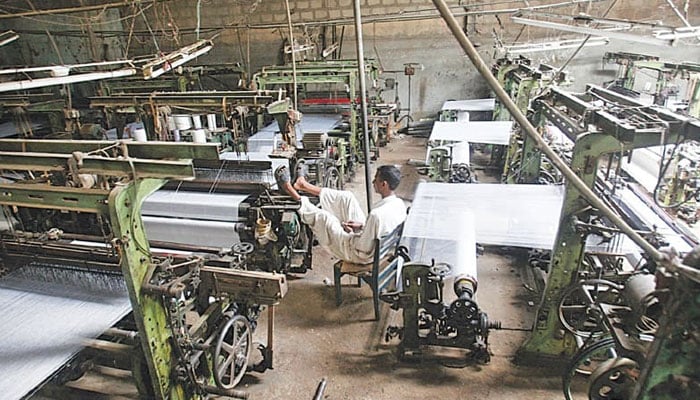- APTMA chief says textile exports will be limited to $16-17bn this year.
- He reveals industry exports raw cotton four times compared to imported value.
- Industry player warns 7m people will be unemployed in January.
LAHORE: As Pakistan struggles to boost depleting foreign exchange reserves, the textile owners threatened the government of staging a protest due to the delay in the clearance of imported cotton containers at Karachi port, The News reported Friday.
All Pakistan Textile Mills Association (APTMA) Chairman Hamid Zaman said: “The textile industry will be forced to protest if the government doesn’t clear the imported cotton coming to Karachi.”
The textile industry would fail to meet an export target of $25 billion in the current year on the non-availability of raw materials, mainly raw cotton, he said during a programme organised by the Lahore Economic Journalist Association.
“This year, textile exports will be limited to $16-17 billion,” he predicted.
The textile industry imports raw cotton and after value addition exports it at four times the imported value. Thus, the government should allow exporters to import 35% of the export value.
The APTMA chief, however, warned that if things are not controlled, seven million people associated with the industry will be unemployed in January.
“The industry was left with 60 days’ of raw materials only and if timely clearance of already arrived cotton will not start from the port, textiles will completely shut down. This will result in unemployment of 25 million people across the country,” he warned.
Zaman informed that almost 30-50% of the textile industry of Punjab, Khyber Pakhtunkhwa, and Sindh had already been completely or partially closed.
“The textile industry has so far ordered 1.7 million bales of cotton from the US, out of which 0.531 million cotton bales have been dispatched while 100,000 bales have already arrived at Karachi port with a value of more than $300 million.”
APTMA chief urged the government to instruct commercial banks as well as the State Bank of Pakistan to ensure the timely opening of letters of credit for the cotton importers to avoid any export crisis.
In response to a question, Zaman admitted that some exporters could not bring their export amount back to Pakistan due to the instability of the exchange rate. He also urged the government to take action against those who were hoarding the US dollar, vowing that the APTMA would support the cause.
Zaman further pointed out that demurrages and detention charges on imported goods had exceeded the value of the goods that foreign companies had to pay.
“So far, Rs2 billion in demurrages and detention charges have been charged, which are increasing with time, and since last few days the traders and banks will be at odds with each other.”
APTMA Senior Vice Chairman Kamran Arshad said a severe shortage of raw cotton was there in the local market as the country had produced only 4.6 million cotton bales.
He mentioned that 15 million cotton bales were required to achieve $20 billion in exports.

 Entertainment2 days ago
Entertainment2 days ago
 Latest News2 days ago
Latest News2 days ago
 Latest News2 days ago
Latest News2 days ago
 Latest News2 days ago
Latest News2 days ago
 Latest News2 days ago
Latest News2 days ago
 Latest News2 days ago
Latest News2 days ago
 Entertainment2 days ago
Entertainment2 days ago
 Business23 hours ago
Business23 hours ago






















